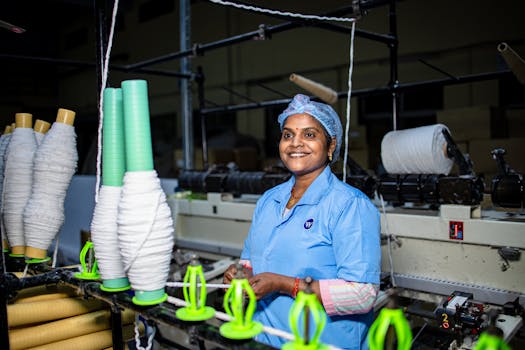
Empowering Communities: The Role of Women in Africa’s Fiber Production – Empowering Communities
Empowering Communities: The Role of Women in Africa’s Fiber Production is a crucial aspect of the continent’s economy, providing income and employment opportunities for thousands of women and their families. The production of fiber, which includes cotton, sisal, and other plant-based materials, is a significant sector in many African countries, with women playing a central role in the cultivation, harvesting, and processing of these crops.
Introduction to Fiber Production in Africa
Fiber production in Africa is a vital industry that supports the livelihoods of millions of people, particularly in rural areas. The sector provides a range of benefits, including income generation, job creation, and food security. Women are key players in this industry, responsible for up to 80% of the labor involved in the production of fiber crops. Despite their significant contribution, women often face challenges in accessing markets, finance, and technology, which can limit their ability to fully participate in the sector and benefit from its opportunities.
The Importance of Women’s Participation in Fiber Production
The participation of women in fiber production is essential for the growth and development of the sector. Women bring a range of skills and knowledge to the industry, including expertise in cultivation, harvesting, and processing. They are also responsible for managing the household and caring for family members, which means that their income from fiber production is often used to support the basic needs of their families. By supporting women’s participation in fiber production, we can help to promote economic growth, reduce poverty, and improve the well-being of families and communities.
Challenges Faced by Women in Fiber Production
Despite the importance of women’s participation in fiber production, they often face a range of challenges that can limit their ability to fully participate in the sector. These challenges include limited access to finance, technology, and markets, as well as social and cultural barriers that can restrict their ability to own land, access credit, and participate in decision-making processes. Women may also face difficulties in balancing their work in fiber production with their responsibilities in the household and caring for family members.
Empowering Women in Fiber Production
To address the challenges faced by women in fiber production, it is essential to empower them with the skills, knowledge, and resources they need to fully participate in the sector. This can involve providing training and education in areas such as business management, marketing, and technology, as well as supporting women’s access to finance, markets, and other resources. It is also important to promote social and cultural change, by challenging traditional norms and stereotypes that can limit women’s participation in the sector.
Conclusion
In conclusion, the role of women in Africa’s fiber production is a vital component of the continent’s economy, providing income and employment opportunities for thousands of women and their families. By empowering women with the skills, knowledge, and resources they need to fully participate in the sector, we can help to promote economic growth, reduce poverty, and improve the well-being of families and communities.




